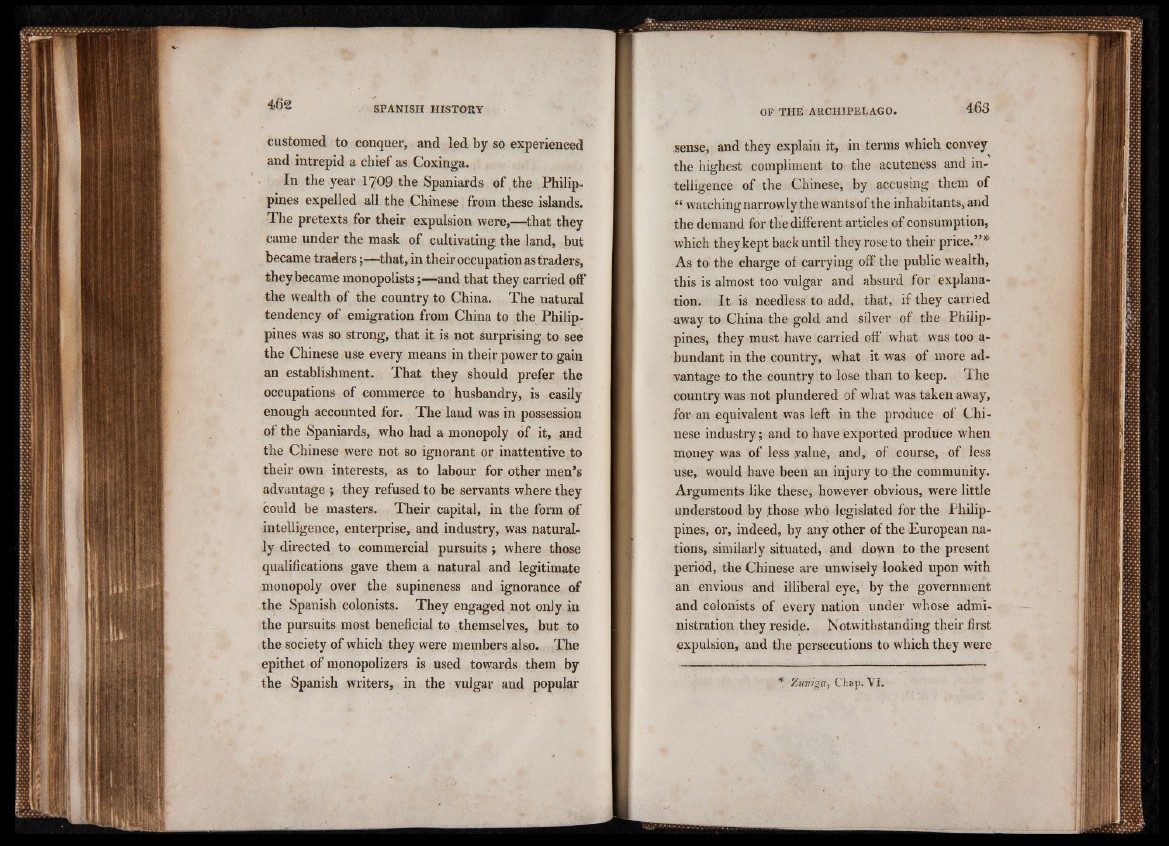
customed to conquer, and led by so experienced
and intrepid a chief as Coxinga.
In the year 1709 the Spaniards of the Philip-
pines expelled all the Chinese from these islands.
The pretexts for their expulsion were,—that they
came under the mask of cultivating the land, but
became traders j—that, in their occupation as traders,
they became monopolists ;—and that they carried off
the wealth of the country to China. The natural
tendency of emigration from China to the Philip,
pines was so strong, that it is not surprising to see
the Chinese use every means in their power to gain
an establishment. That they should prefer the
occupations of commerce to husbandry, is easily
enough accounted for. The land was in possession
of the Spaniards, who had a monopoly of it, and
the Chinese were not so ignorant or inattentive to
their own interests, as to labour for other men’s
advantage ; they refused to be servants where they
could be masters. Their capital, in the form of
intelligence, enterprise, and industry, was naturally
directed to commercial pursuits j where those
qualifications gave them a natural and legitimate
monopoly over the supineness and ignorance of
the Spanish colonists. They engaged not only in
the pursuits most beneficial to themselves, but to
the society of which they were members also. The
epithet of monopolizers is used towards them by
the Spanish writers, in the vulgar and popular
sense, and they explain it, in terms which convey
the highest compliment to the acuteness and intelligence
of the Chinese, by accusing them of
ff watching narrowly the wants of the inhabitants, and
the demand for the different articles of consumption,
which they kept back until they rose to their price.” *
As to the charge of carrying off the public wealth,
this is almost too vulgar and absurd for explanation.
It is needless to add, that, if they carried
away to China the gold and silver of the Philippines,
they must have carried off what was too a-
bundant in the country, what it was of more advantage
to the country to lose than to keep. The
country was not plundered of what was taken away,
for an equivalent was left in the produce of Chinese
industry ; and to have exported produce when
money was of less value, and, of course, of less
use, would have been an injury to the community.
Arguments like these, however obvious, were little
understood by those who legislated for the Philippines,
or, indeed, by any other of the European nations,
similarly situated, and down to the present
period, the Chinese are unwisely looked upon with
an envious and illiberal eye, by the government
and colonists of every nation under whose administration
they reside. Notwithstanding their first
expulsion, and the persecutions to which they were
* Zuniga, Chap. VI.